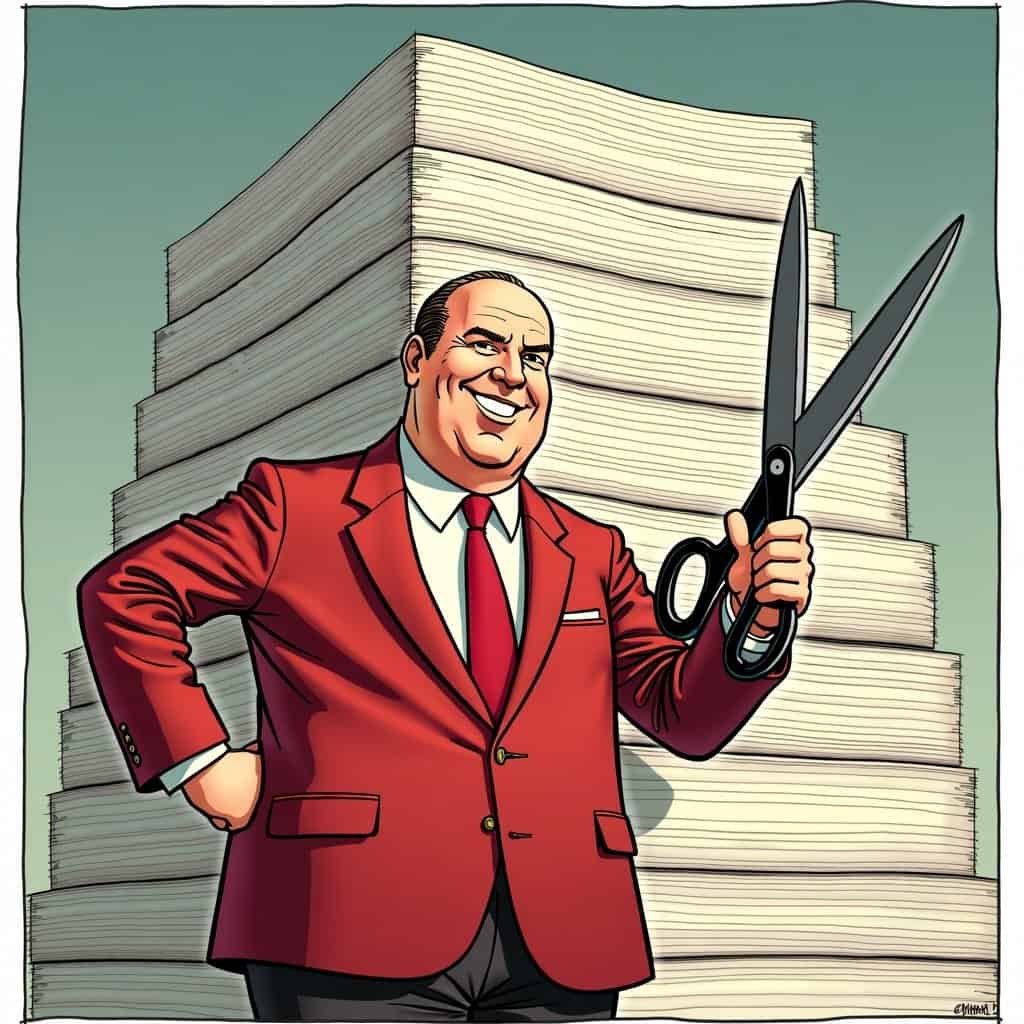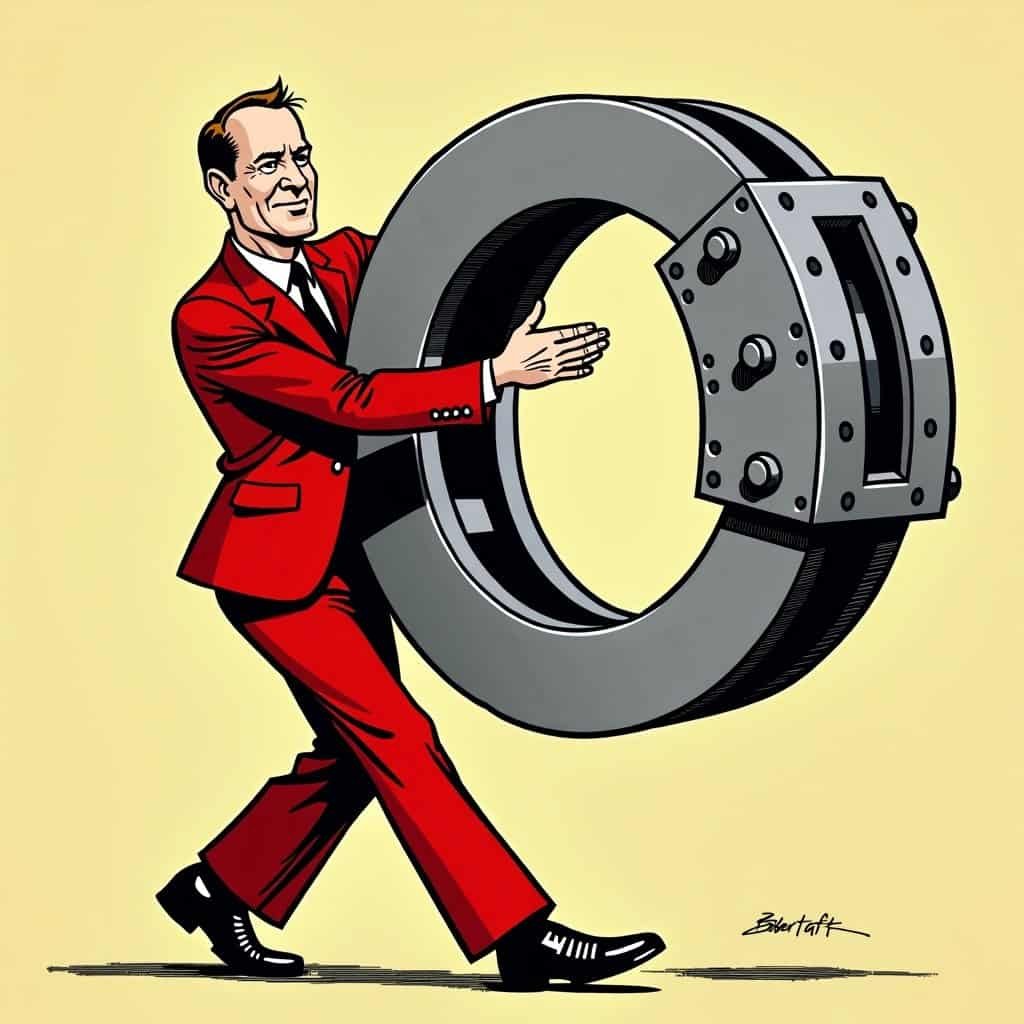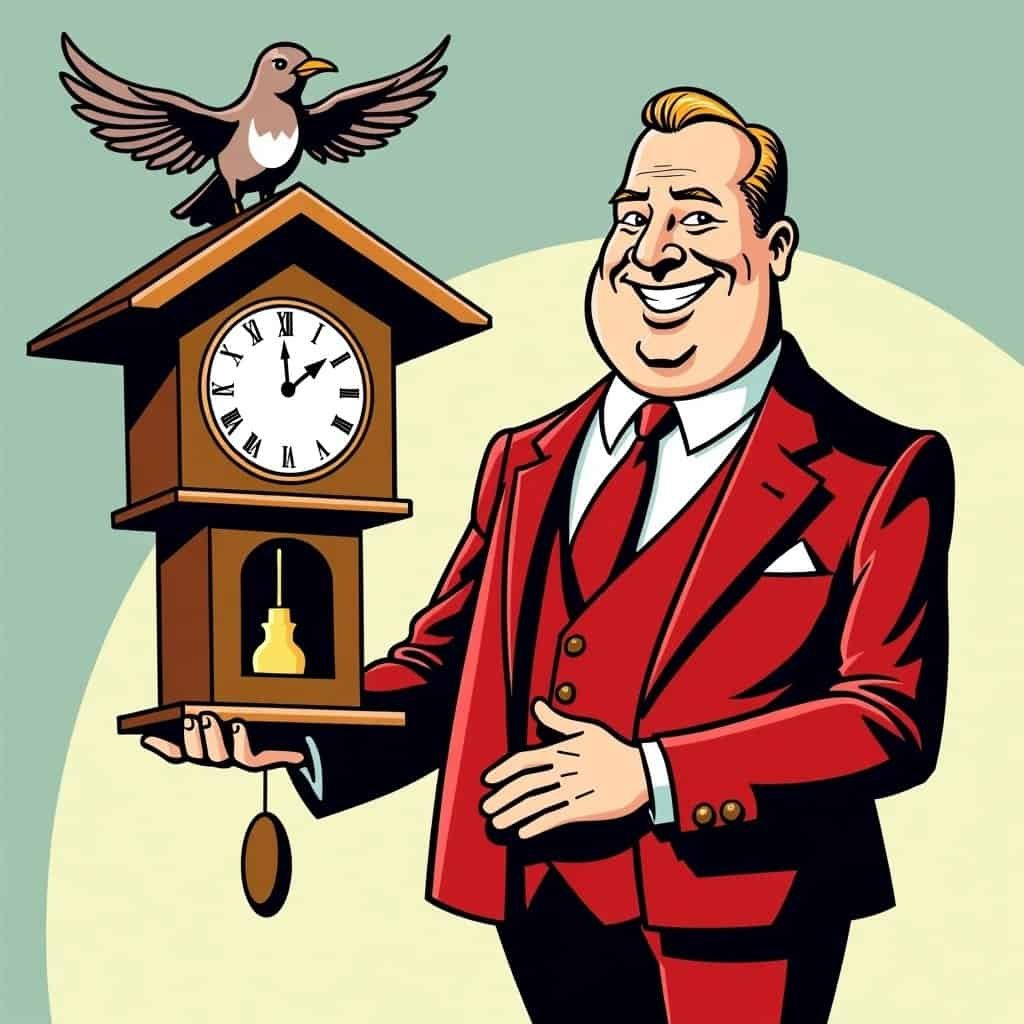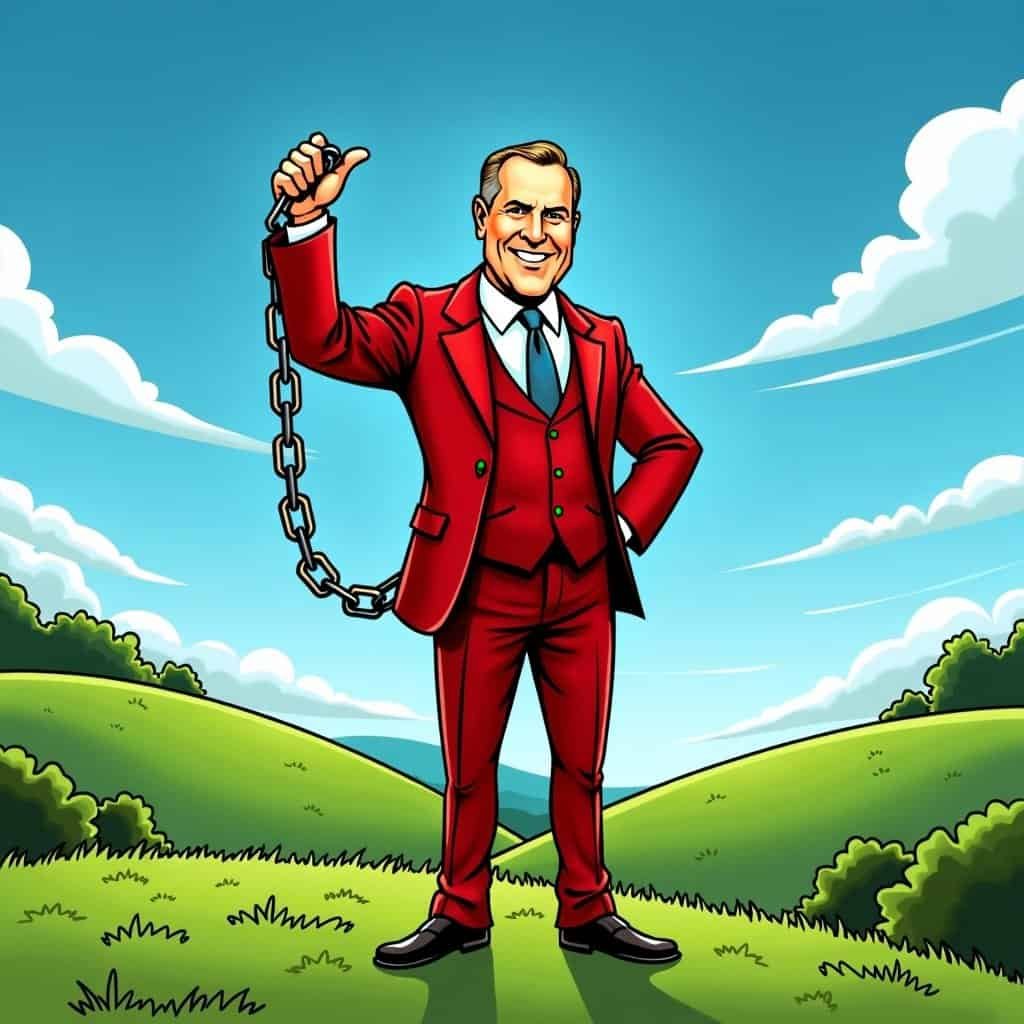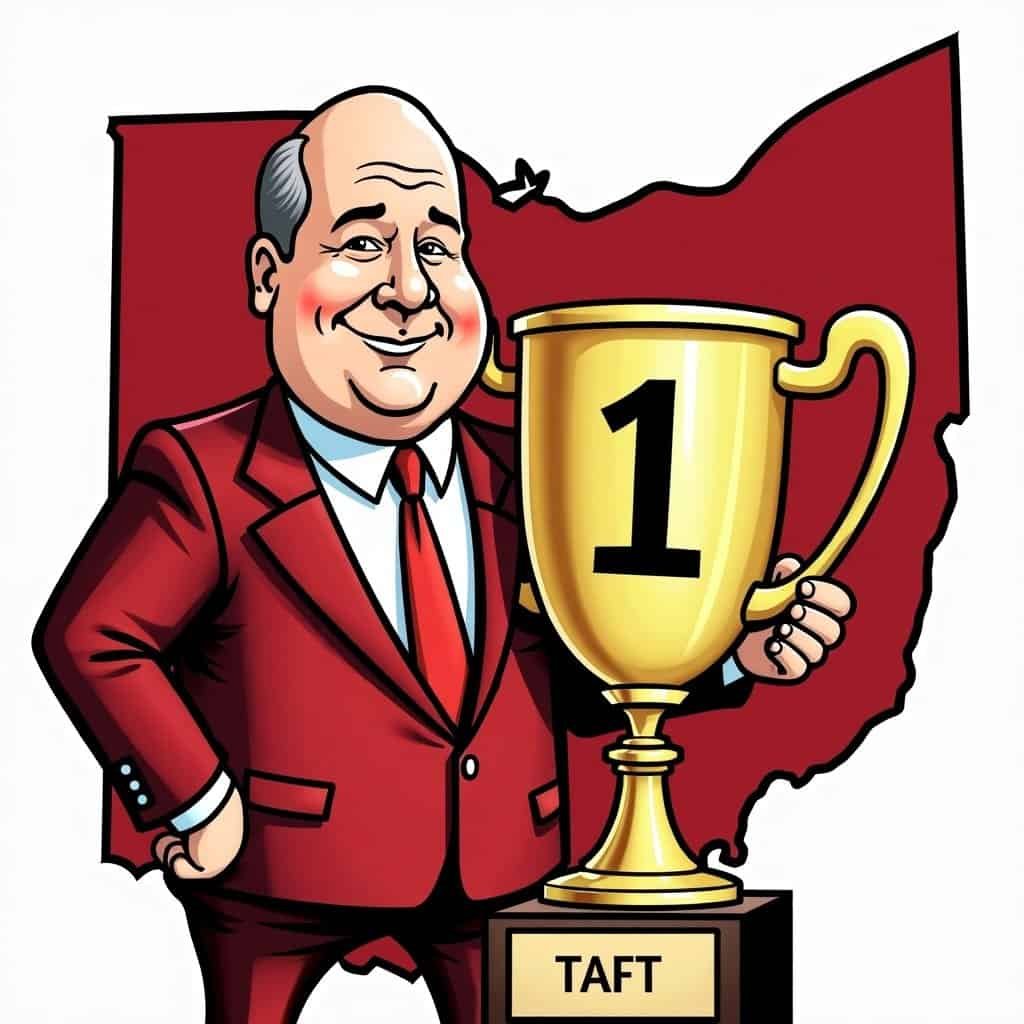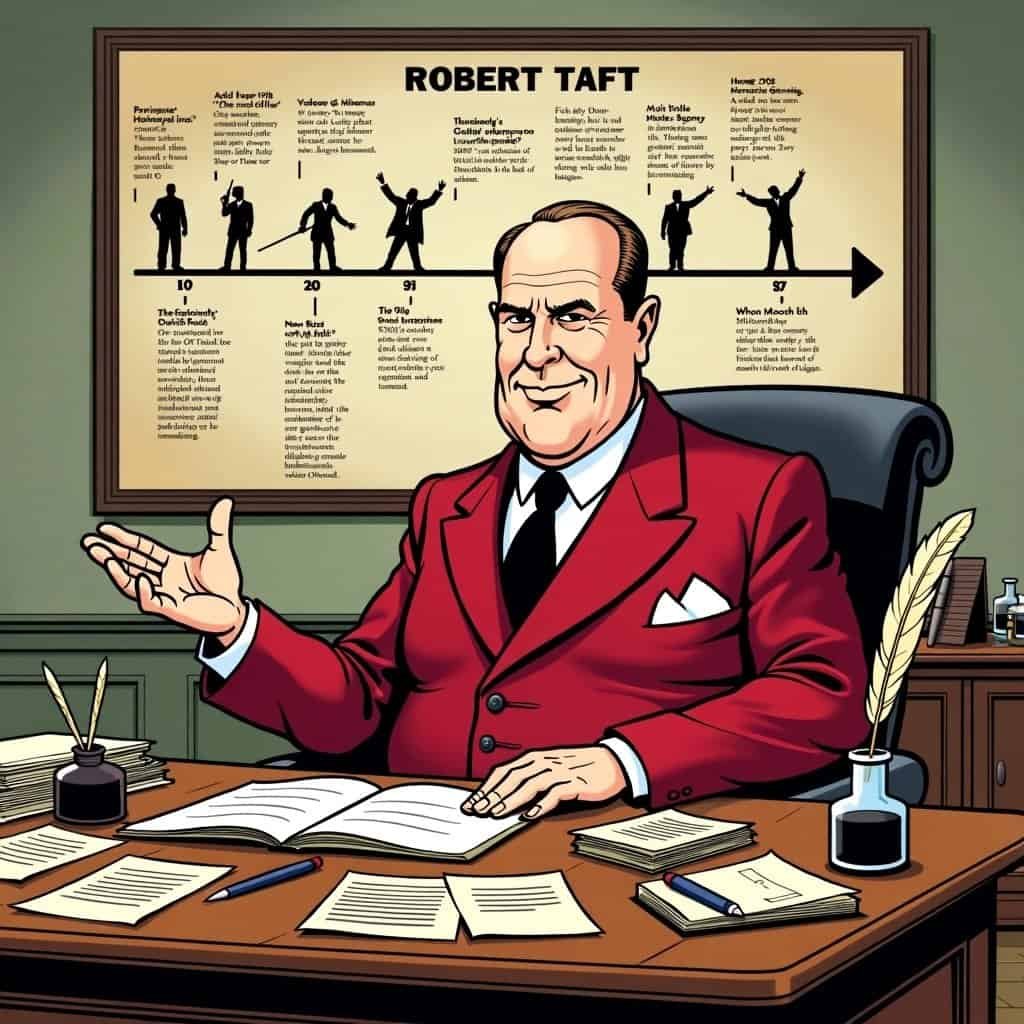Ah, Robert Taft. The gentleman of the Senate, the true ‘Mr. Conservative,’ champion of the tidy, quaint, and some might say nostalgic ideal of a limited federal government. Today, we’re taking a look at his skeptical view on the rapid growth of Uncle Sam’s bureaucratic belly! Get ready—you might find yourself humming “Give me liberty, or give me a tax refund!”
Picture a world where the federal government acts like an overbearing hall monitor, constantly checking if your tax deductions match the latest IRS codes—thrilling, right? Not really, unless you enjoy paperwork adventures. But that’s what worried Taft when government expansion loomed large during his time in the political spotlight.
In Taft’s era, the idea of ‘keep it small, keep it simple’ was popular, reminding us of the benefits of state and local power. The Taftian approach trusted your local town meetings and potlucks to address your needs rather than complicated federal programs with extra taxes. Wouldn’t you rather have a say at the pie raffle instead of watching Washington slice the pie? Taft certainly thought so!
Taft’s Fight Against Federal Bloat
Our hero fought hard (with his trademark wit) against federal expansion, comparing government size to a Thanksgiving turkey. He was like the stern uncle telling everyone to ease up on the stuffing. Coming from a prominent political family, Robert Taft spoke out against post-World War II expansions. While others embraced grand New Deals, this guy preferred the Good Old Deals—giving power back to the people.
Taft’s View vs. Progressive View
| Taft’s Conservative View | Progressive View |
|---|---|
| Limited government involvement | Expanded government programs |
| Focus on state and local power | Emphasis on federal solutions |
| Promote self-reliance | Support social safety nets |
The difference is clear. Where progressives see government programs as tools for equality and progress, conservatives worry about creating a culture of dependency—something Taft viewed with concern. While some saw government spending as the answer, Taft saw it as unnecessary complication—why use a big bouquet when a simple flower will do?
Taft’s Economic Values
Taft championed lower taxes, more private investment, and encouraging innovation rather than government intervention. It’s like comparing a smooth jazz tune to a loud harmonica solo – he preferred his economy free from too much government control. Taft liked his debates straightforward, like his morning coffee: focused, effective, and promoting self-reliance and personal responsibility as keys to real prosperity.
Those were times when ‘freedom’ itself seemed threatened by increasing federal mandates. Yet, just like when you accidentally spill coffee on your tie, Taft managed to keep his cool—staying composed under pressure but passionate about his core beliefs.
Taft’s Lasting Impact
For those who appreciate Robert Taft’s legacy and his criticism of federal government growth, it brings to mind the charm of backyard discussions. In these talks, freedom is fueled not by distant rules, but by local needs and the ongoing balance between rights and duties. So as we celebrate our freedoms over this metaphorical barbecue, let’s remember Taft’s watchful eye, making sure the government doesn’t overcook the burgers of our lives. Here’s to you, Robert! You always knew how to keep things in check—like a perfect recipe for conservative taste buds.
